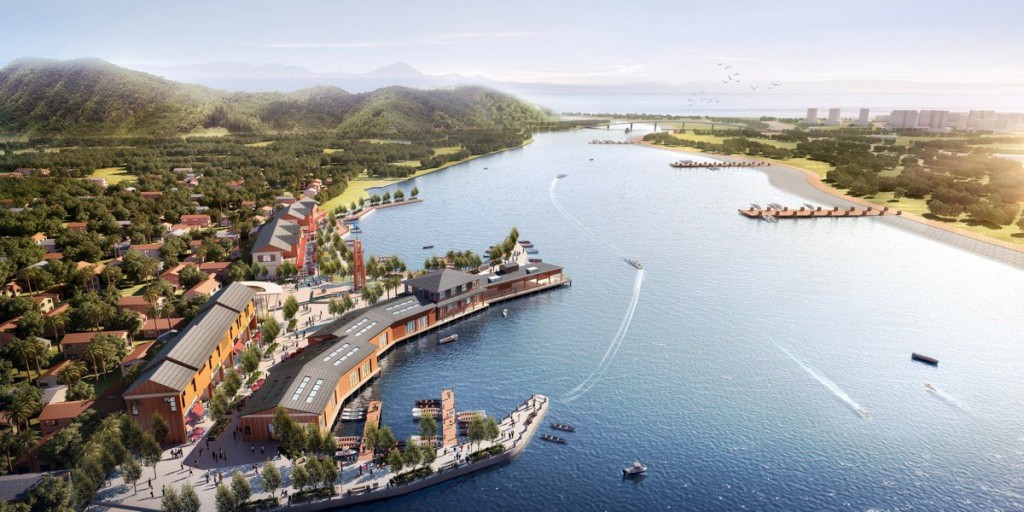Why PSR is important to Penang

Without the controversial Penang South Reclamation (PSR) project, the fishing community in the southern tip of the island will remain as they are.
Contrary to a recent statement, Chief Minister Chow Kon Yeow said the project would in fact improve the socio-economic situation of the fishermen.
Chow reiterated that through the PSR, now referred to as the Penang South Islands (PSI) project, Penang would create new land for industrial, commercial and residential development as well as create thousands of jobs.
He added that their children would benefit from education, training and job opportunities.
“Without the PSR, the fishermen will just remain as they are. Penang will lose the chance to develop and create jobs for its citizens and the future generation.
“As such, the Penang government hopes the people, including the deputy minister, can understand why PSR is important to Penang,” he said today.
Last Thursday, Che Abdullah Mat Nawi described the project as a “disaster to Penang fishermen” and claimed that it would destroy the national fisheries sector.
His response came a day after Chow’s, who said the Penang government would proceed with the PSR.
Chow again reiterated that Penang does not have to choose between the PSR and safeguarding the fishermen and food security.
He stressed that the state could do both because fishermen would still be able to fish when the reclamation begins.
He said the PSR’s construction would only start with one island, and the development will take about 20 years.
“During that period, fishermen will still have unobstructed access to the sea. Therefore, we disagree with the deputy minister that PSR will be a disaster to fishermen.
“Another initiative under the PSR project is a 250m wide navigation channel that will provide fishermen 24-hour access to the sea, regardless of the tide. Presently, the fishermen must wait for high tide to go to sea.
“The state government will ensure mitigation measures will be implemented according to the 72 conditions stated in the project’s Environmental Impact Assessment (EIA) report by the Department of Environment (DoE). Ecology offset programmes that include mangrove planting, deployment of artificial reefs and fish aggregating devices, releases of fish and prawn fry, research funds and others will also be implemented.
“These measures will ensure the reclamation proceeds in a controlled manner to prevent pollution. The offset programmes will help create new habitats for marine life and boost fish stock, which contribute towards the sustainability of the fisheries sector,” he added.
Chow said, as mentioned before, fish landing in south Penang island only contributed four per cent to the whole state’s fish production in 2015, according to data from the Fisheries Department.
In the national context, fish landing from this area only made up about 0.2 per cent.
“We would also like to stress here that the area that contributed four per cent fish landing was not limited to only the PSR site. The whole fishing area for coastal fishermen in south Penang island is much larger and farther from the earmarked reclamation site. This means the fishermen will still have a wide area for their fishing activities.
“The state government does not intend to belittle the contributions of fishermen from the south Penang island fishermen units. They all contribute to the fisheries sector and the economy as well as provide food for the people.
“We appreciate the fishermen community and we want them to also progress together with the PSR. Therefore, we are implementing the SIMP to ensure fishermen from the Permatang Tepi Laut, Sungai Batu, Teluk Kumbar, Gertak Sanggul, Batu Maung, Sri Jerjak, Teluk Tempoyak, Pulau Betong and Kuala Sungai Burung units benefit from the project.
“We have said many times that the SIMP offers fishermen in south Penang island ex-gratia payments; aid in form of boats and engines; and four new fishermen jetties in Permatang Tepi Laut, Sungai Batu, Teluk Kumbar and Gertak Sanggul. It also offers business and job opportunities; training, free tuition, scholarships, and education opportunities for young fishermen and their children; housing initiatives; and others,” he said.
With all these measures, Chow noted, the state government could ensure development and environmental preservation, as well as safeguarding the welfare of all fishermen.
“We should not be forced to make only one choice,” he reiterated.


Most important thing – Got hands out or not ?
@DontBefooled Agreed…All of them are talking to money…They will never said this project is for 2nd home project…It is not benefit to local people and all the future they said is bullshit without any facts.
will there be LRT… and other highway projects without PSI ?
Their logic: Execute PSI/PSR first, got leftover profits then only continue with PTMP and build LRT.
Why Penang reclaimation so controversial? and why the controversial do not happened to other state when doing the same thing which the size of the state is more bigger then Penang, among the reason will be the jealousy and envy on the potential and possible development at Penang.
@Alan Tan
These are some possibilities in my opinion:
1. Other states reclaimation is done at the less populated area so less noise from the affected residents.
2. The affected residents are being compensated well in other states.
3. Less NGO and environmentalists pressure in other states.
4. Doubtful of Penang state gov track record which always favours developers and not Penangites benefit overall.
@Alan Tan
I dont see anything to be jealous about when you have so many failed reclaimation projects in msia like in malacca and johor. Progress can be made even without this PSI, it’s such a waste of resources. It’s like you’re not even taking good care and harvesting your existing old durian trees, but you’re saying you need to plant new durian trees and wait 15 years to get durians. I call that SLOWING DOWN PROGRESS and that’s bonkers!